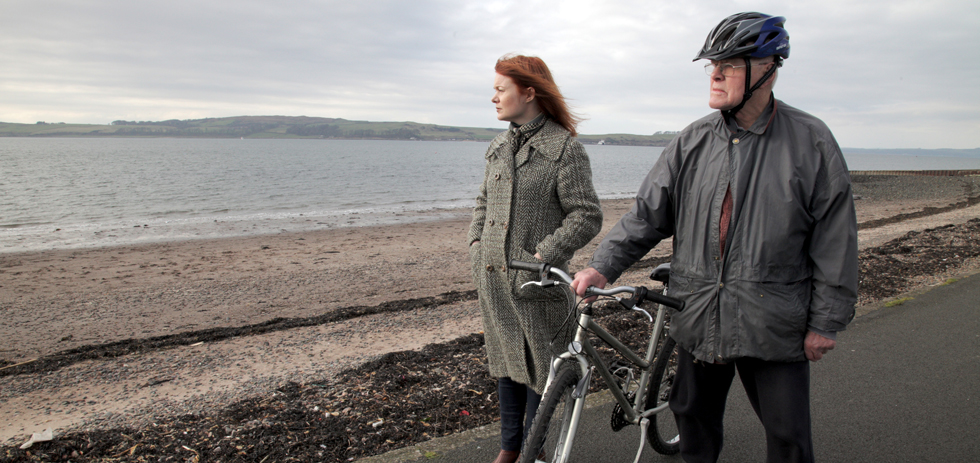
Returning to the seaside Scottish town in which she was raised to help take care of her mother Ann after she suffers a debilitating stroke, documentary filmmaker Karen Guthrie (Living With The Tudors) records the ensuing small moments that take place in the family home. Playing detective on her own family history, Guthrie also delves into the complicated relationship between her mother and father Ian, who moves back into the family home to take care of Ann despite their separation.
Filming originally began three weeks prior to Ann’s stroke, and The Closer We Get was meant to be a portrait of the fractured Guthrie family unit. One of four children, Karen was the black sheep of the family who left her hometown as soon as possible in favour of art school. There are two siblings who stayed behind, and her older brother, Mark, who moved back into the family home after his career as a musician didn’t work out as planned. More compelling, though, is the family secret that burst into their lives a decade earlier – Ian’s illegitimate son Campbell, born to a woman in the small Horn of Africa country of Djibouti. When Ian moves back into the family home after Ann’s stroke, The Closer We Get is forced to merge the story of the Guthrie family’s fractured history and its present-day assemblage. The impenetrable Ian mills around with a gruff sense of duty, while Ann’s enormous inner strength is captured by the ever-present cameras; these are perhaps the most emotionally salient moments of the film.
Channeling the mortal fear that we all succumb to as we grow older – the fear of our parents’ death, prompted by the implicit adult knowledge that our parents are not immortal – the film does well to capture the emotional elephant-in-the-room of Ann’s worsening condition. Every scene in The Closer We Get is framed carefully – lovingly – and each crisp shot distills the harsh emotional reality that the Guthrie’s and countless other families find themselves in when forced to pick up the pieces in the wake of a tragedy. The material is slow and meditative, but it gives us a chance to connect with the various players in the family. Unfortunately, though, the film directs the vast majority of its attention onto Ian at the cost of knowing more of Ann, whose sarcastic raspy utterances provide for some of the most compelling footage. Despite being almost completely incapacitated physically, she manages to exude a sense of control and inner strength that is endlessly beguiling.
In its decision to try and capture both the historical drama of the Guthrie family and its present day banding together in the wake of Ann’s stroke, The Closer We Get ends up feeling somewhat half-cocked. The subject matter is rich, but the film’s decision to try and tackle both means that there is less time to grapple with Ian’s dodgy past, and even less time to bond with the Guthries in their home. An admittedly personal exercise in painting a family portrait in an attempt to know herself better, Karen does create some thought-provoking material, but the sheer volume of subject matter in The Closer We Get means that none of the emotional themes raised are explored to the extent that they deserve. Truly, there are some beautiful moments in the film, and her poetic narration throughout is suitably heart-wrenching. The Closer We Get does well to paint a picture of a devastatingly ordinary family tragedy, but its keenness to inject it with the messy drama of the past means that the most emotionally salient themes are left behind; the gratuitous Djibouti footage leaves us aching for the more compelling, simple footage of Karen helping Ann to fill out her medical forms.
